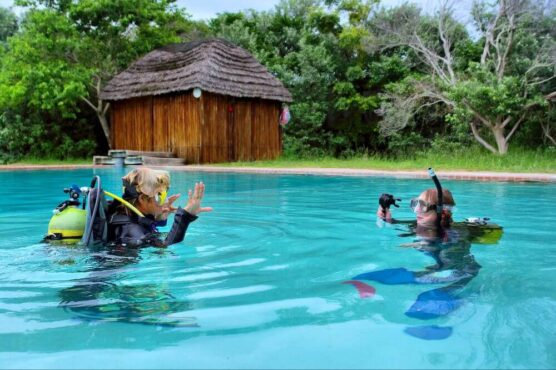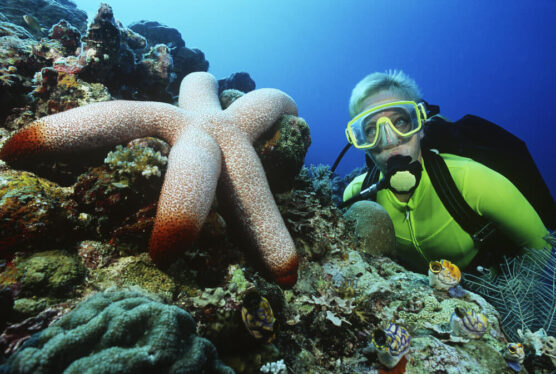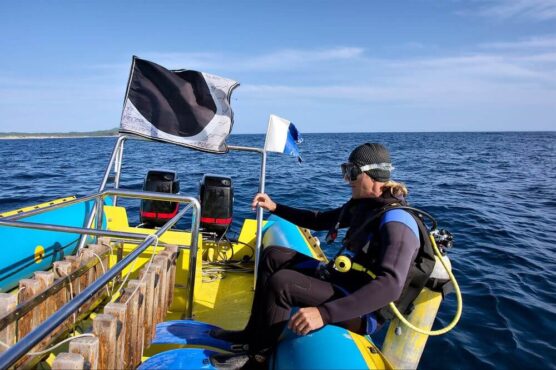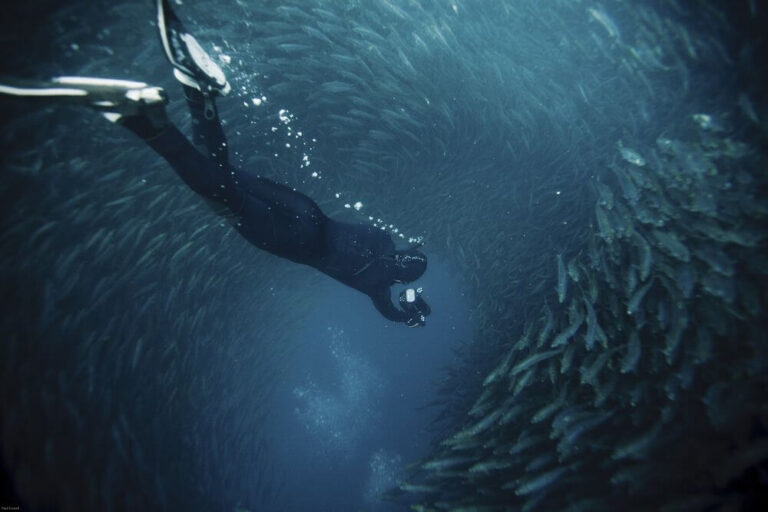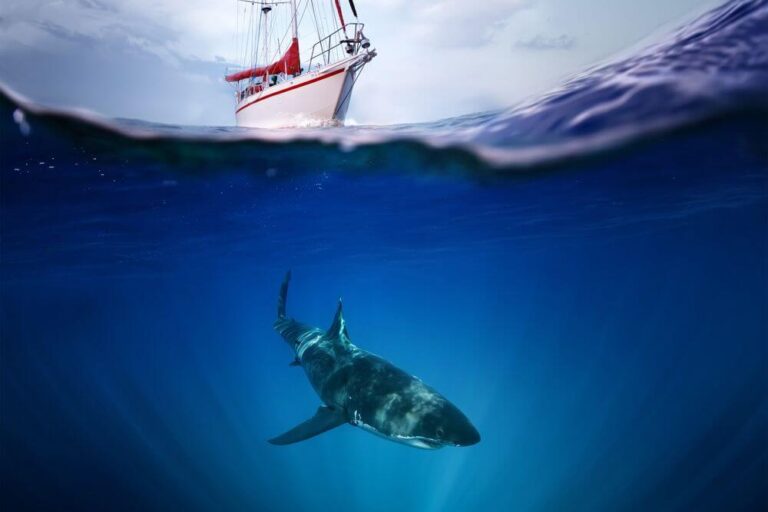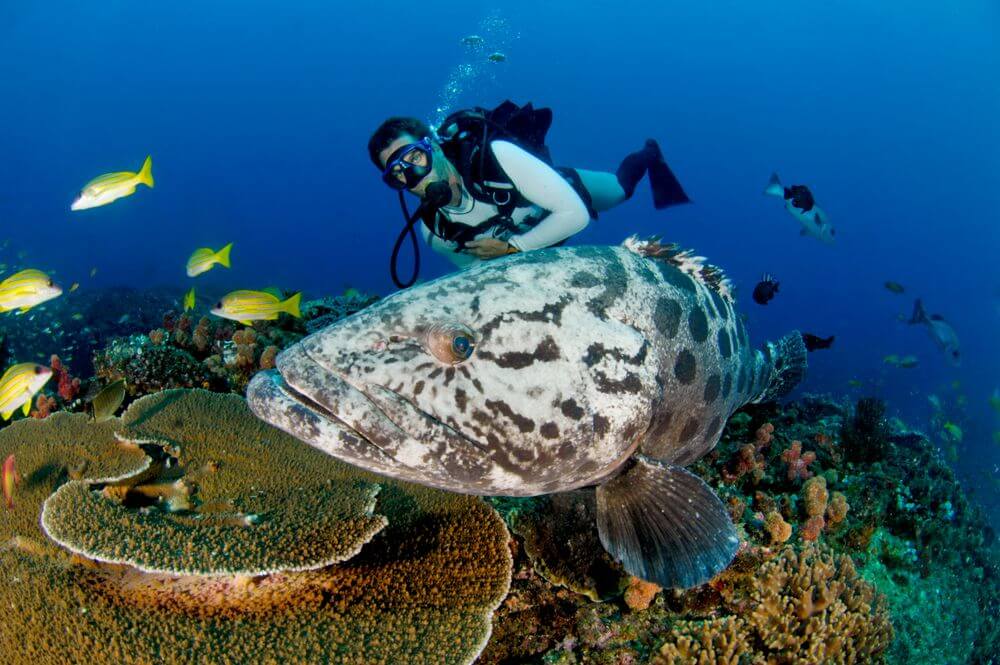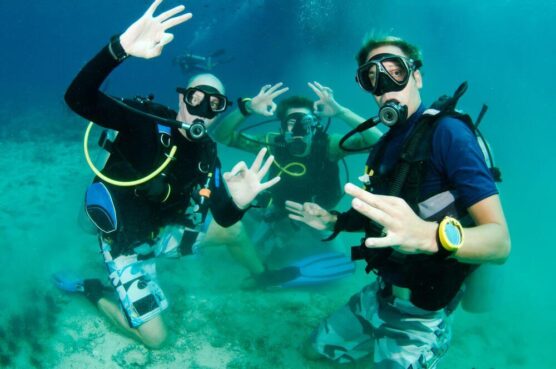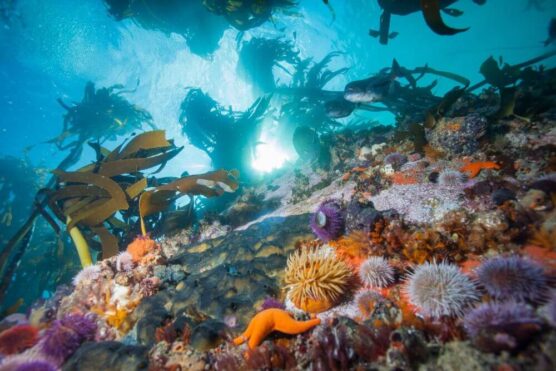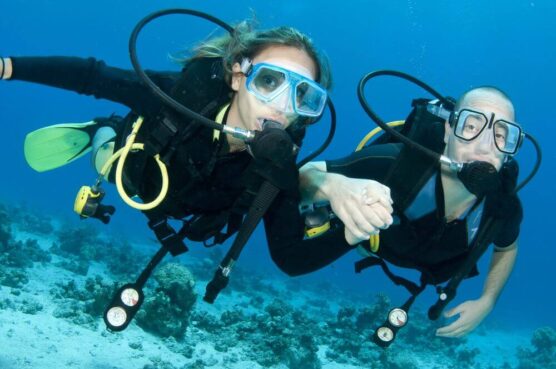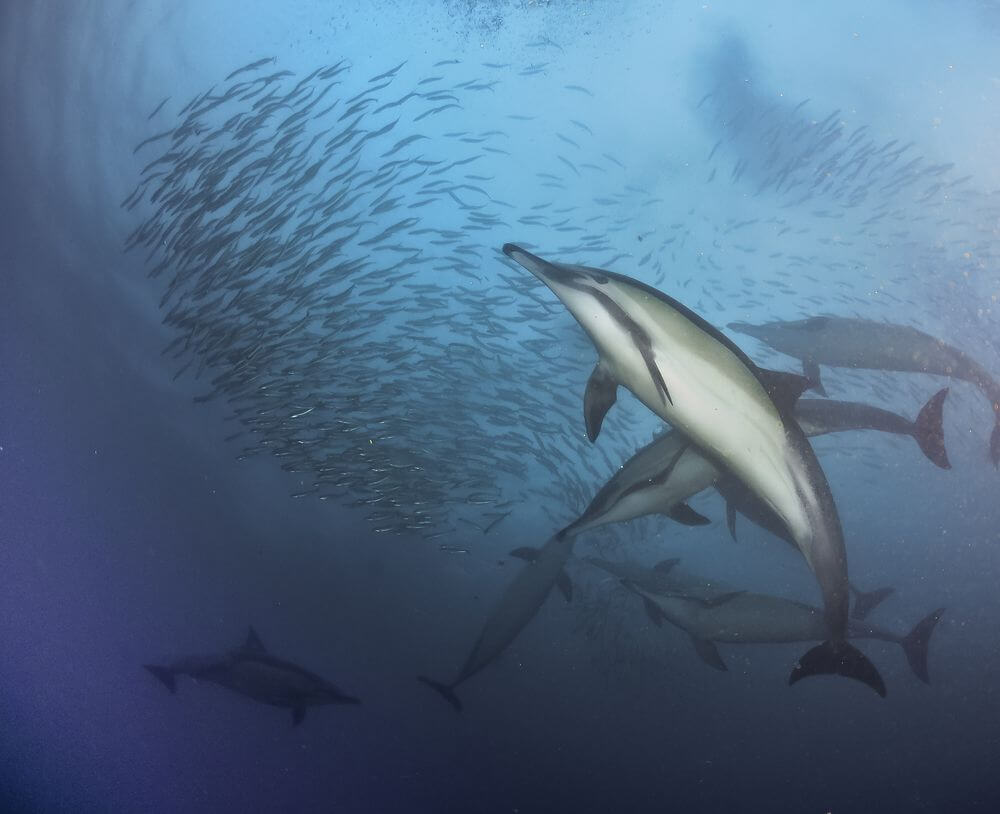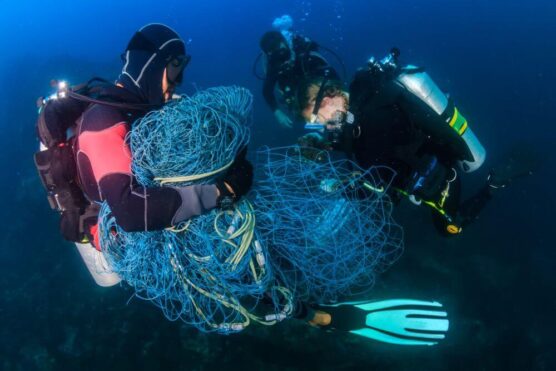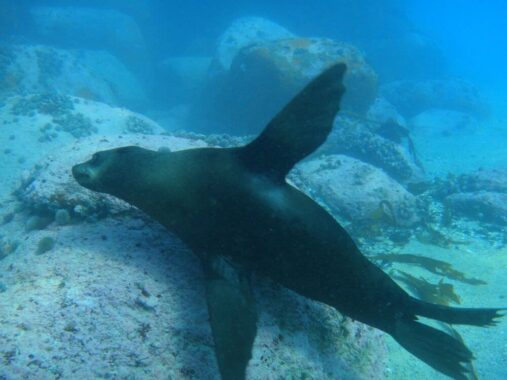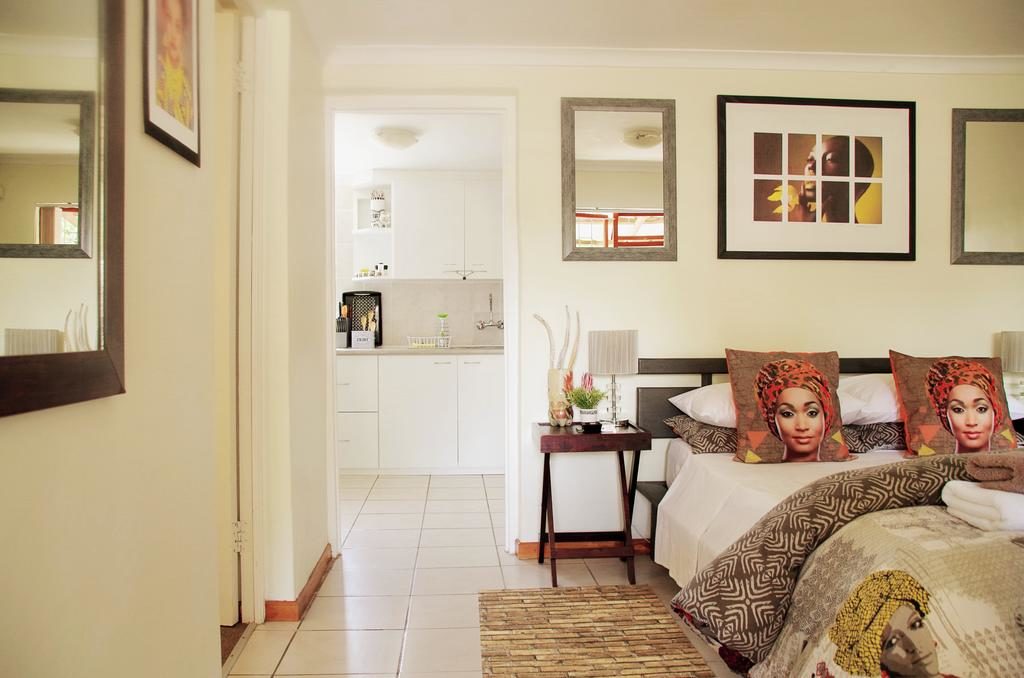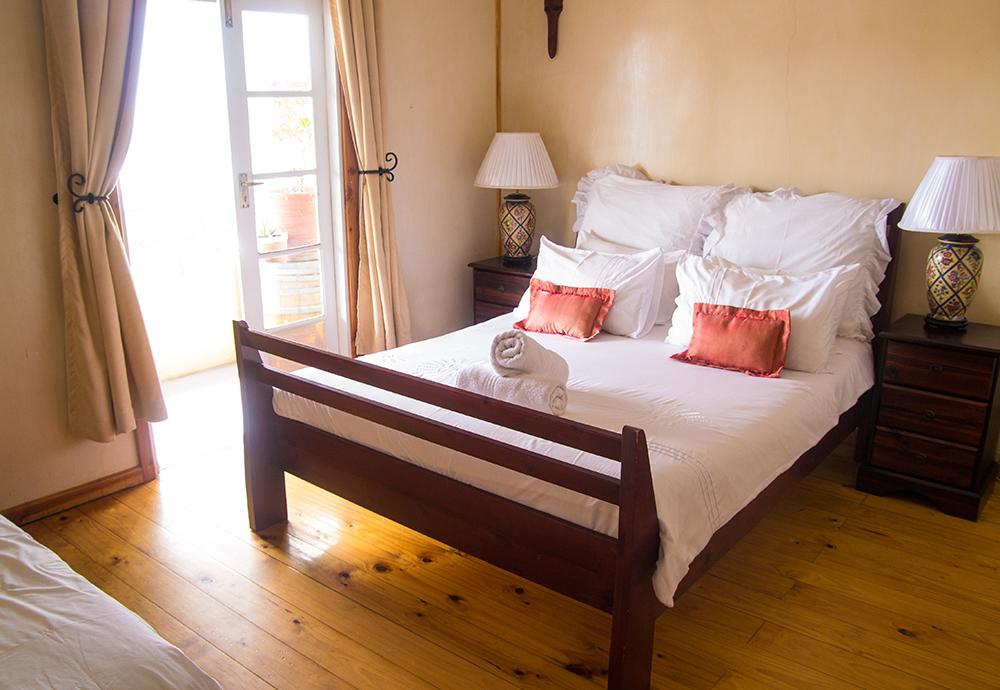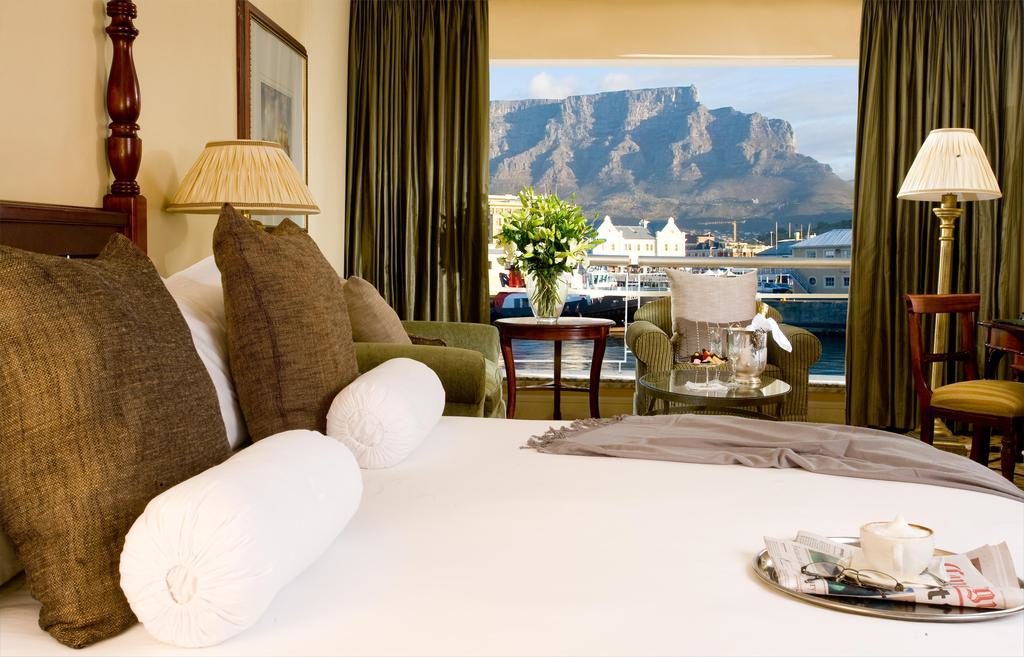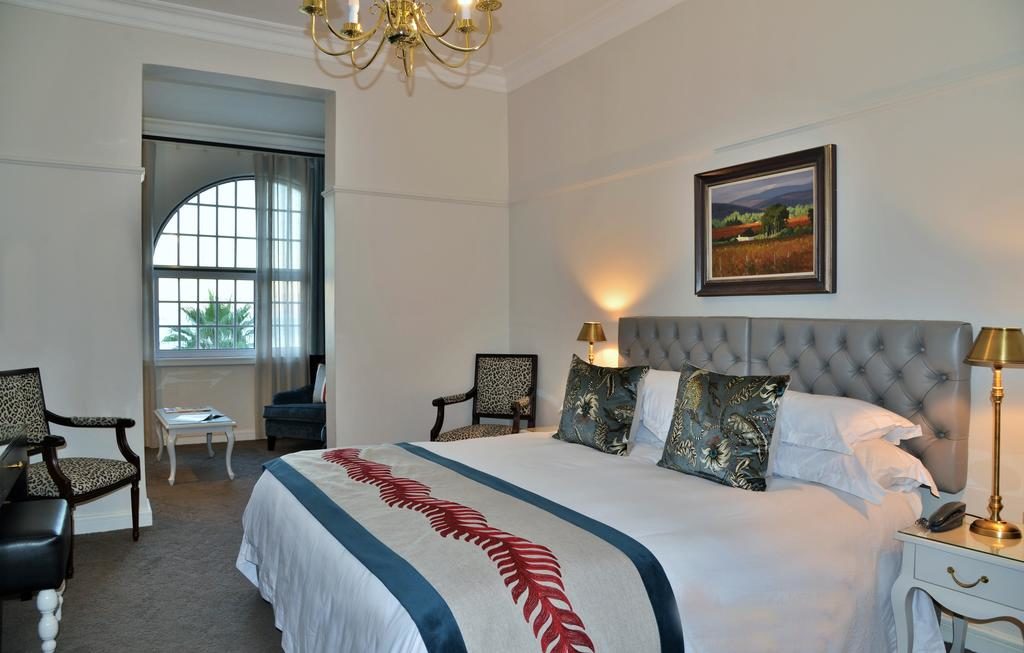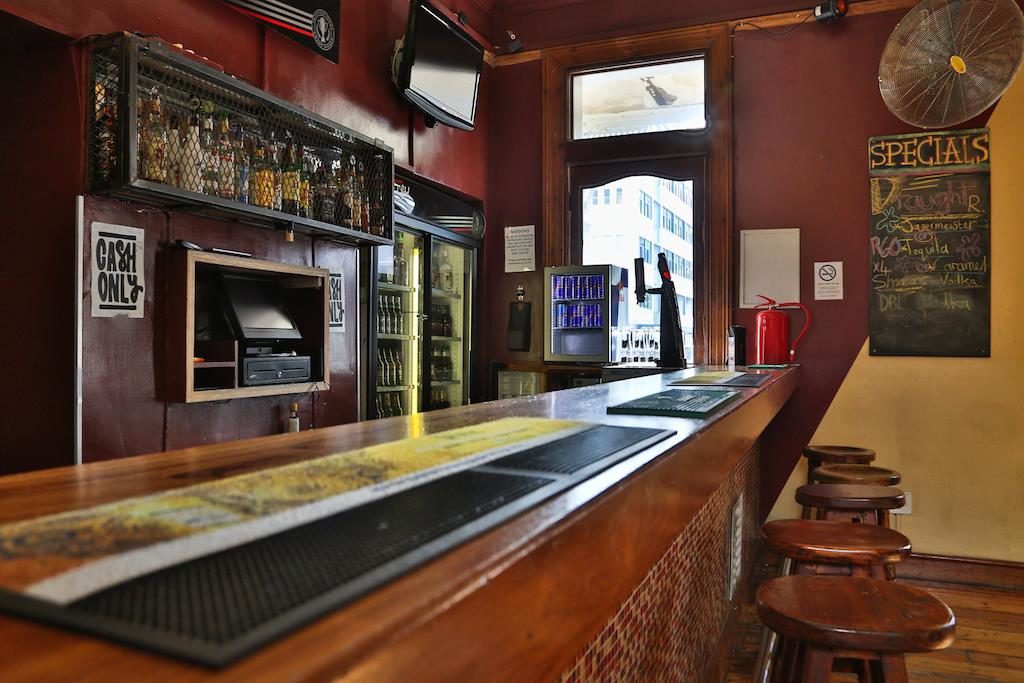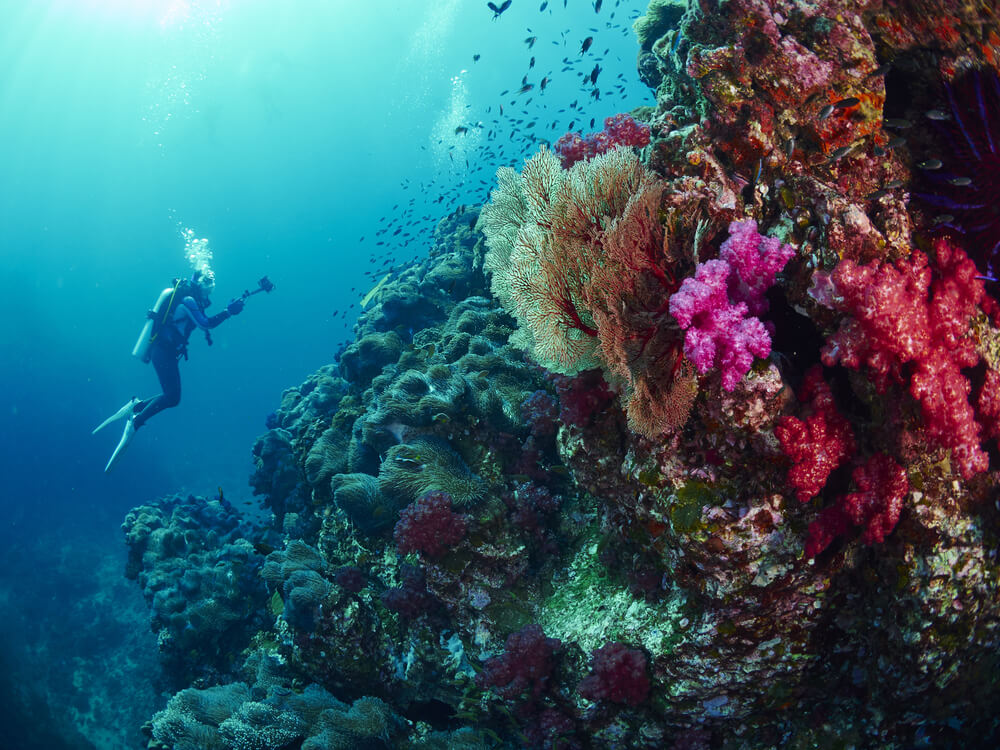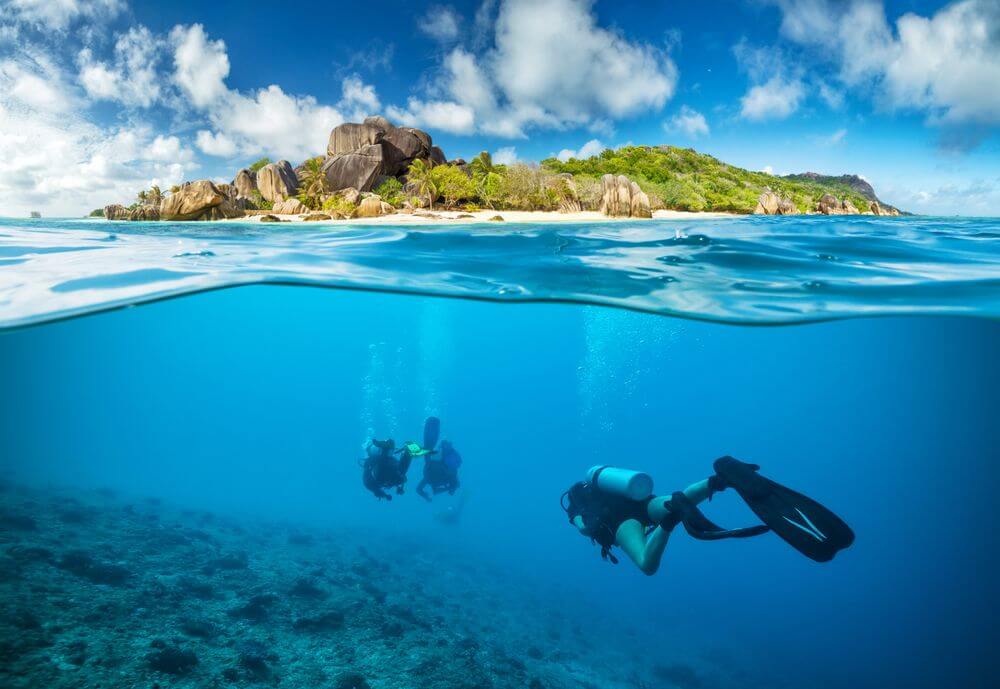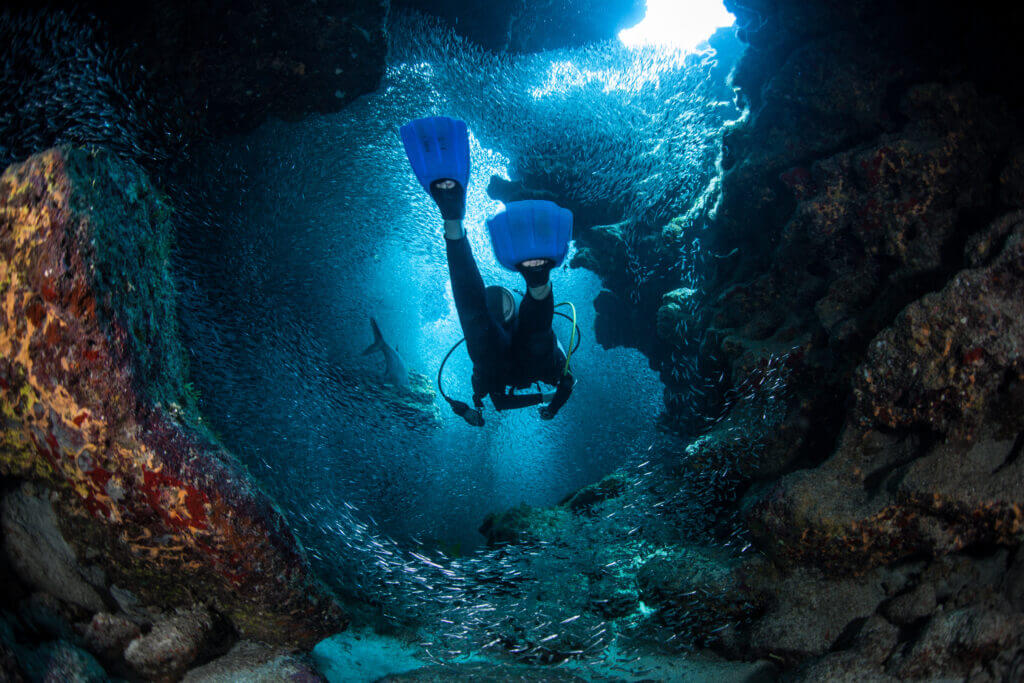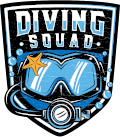
Diving in Cape Town
A thin rocky outcrop near the southernmost tip of Africa, the Cape Peninsula is surrounded by ocean – Scuba Diving and Cape Town were always meant to be. This amazing peninsula rises steeply out of the Atlantic Ocean; just look how the flat ocean surface is abruptly replaced by steep mountain slopes!
The ocean floor is dotted with breaktaking diving spots in Cape Town, like the very popular A-Frame and The Boss 400 (Africa’s largest wreck). Diving amongst shipwrecks, reefs and lush kelp forests anyone?
An attraction in their own right, they also provide homes and food for some awesome marine life. Cape Fur Seals being the most friendly of all the residents, Giant Yellowtail Tuna, Seahorse, Octopus, and a number of shark species are also found.
Great Whites do call the Cape Peninsula home, but it’s extremely unlikely you will bump into them. Look out for the many harmless and rather cute shark species often seen while diving though!
Our favourites include the Pyjama Shark, Puffadder Shyshark, and 7 Gill Cow Shark species. And yes, we’ll be sharing the best diving school for diving with these sharks with you too… in a bit 😉
So, when exactly is the least cold time of year to dive in Cape Town, a dive destination notorious for water that varies from extra-cold to just cold?
And with the option of two coastlines, which side should you dive on for the best visibility and when? You definitely want to have a local around who knows the Mother City and all her tricks.
That’s where this guide comes in. We’ve dived deep to uncover all there is to know about diving in Cape Town.
With the help of some Cape Town dive-masters, we’ll be sharing everything from Cape Town’s best dive schools, the best scuba diving lessons in Cape Town and which spots to avoid at certain times of the year, to how cold is really cold – and ‘will I freeze??’
Ok Squad, let’s dive in!
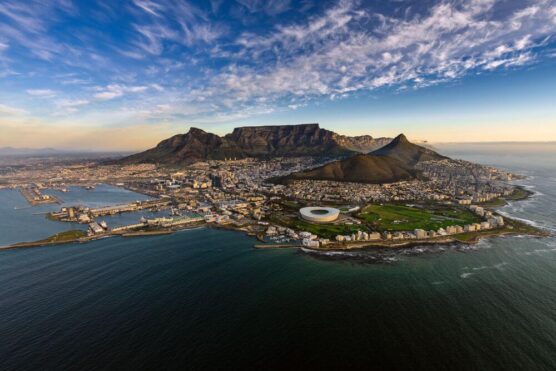
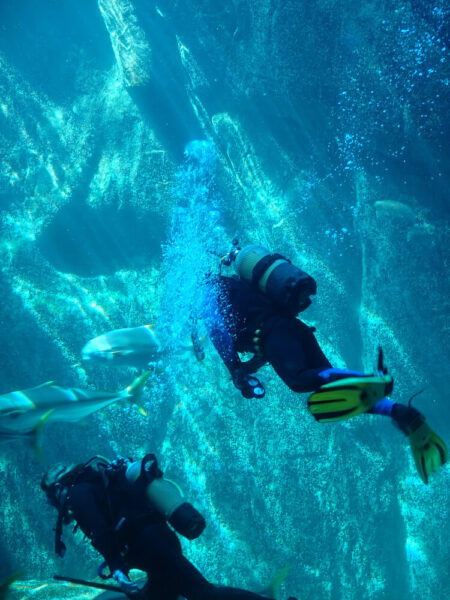
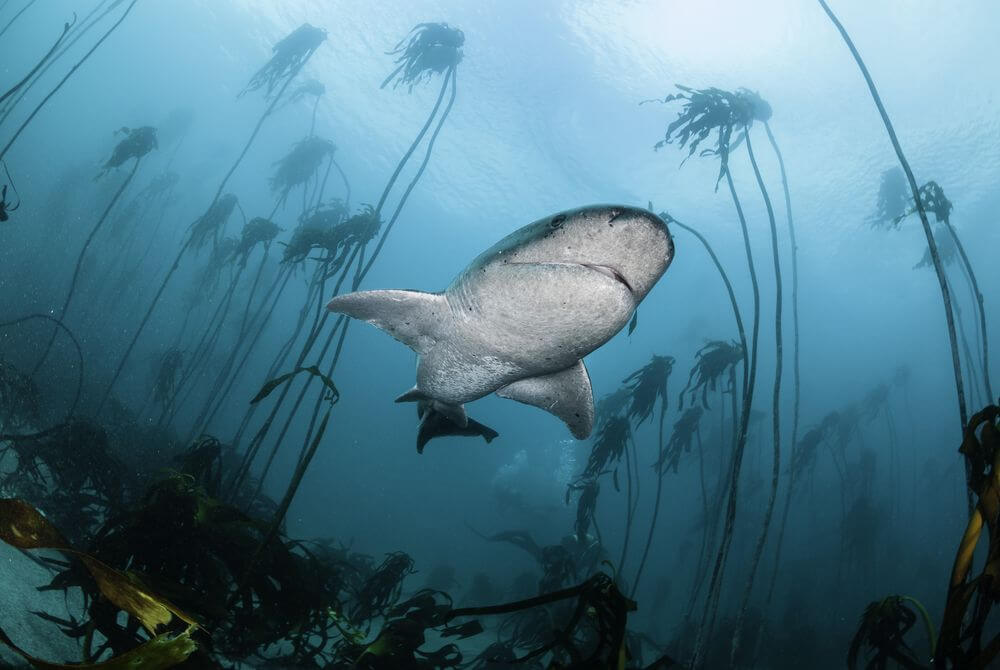
Table Of Content
- The Best Diving Schools in Cape Town
- Best Diving School in Cape Town to get Scuba Certified
- Best Dive Centre in Cape Town for Cheap Diving Courses
- Best Luxury Diving School in Cape Town
- Best Dive School in Cape Town for Big Groups
- Best Diving School in Cape Town for Honeymooners
- Best Diving School in Cape Town for Eco Diving
- Best Diving School in Cape Town for Diving with Sharks
- Diving in Cape Town – Everything You Need to Know
- False Bay
- Atlantic Coast
- Diving Season in Cape Town
- Getting to Cape Town
- Diving Insurance in Cape Town
- The Best Places for Divers to Stay in Cape Town
- Quick Look: Best Divers Accommodation in Cape Town
- Cheapest Place to Stay in Cape Town for Divers
- Best Place for Divers Vibe in Cape Town
- Best Luxury Hotel for Divers in Cape Town
- Best Place to Stay in Cape Town for Honeymooning Divers
- Best Backpacker Hostel in Cape Town for Divers
- Things to Do in Cape Town
- Cape Town as a Location
- Squad Debriefing and Similar Reads
- Diving Squad and Marine Conservation
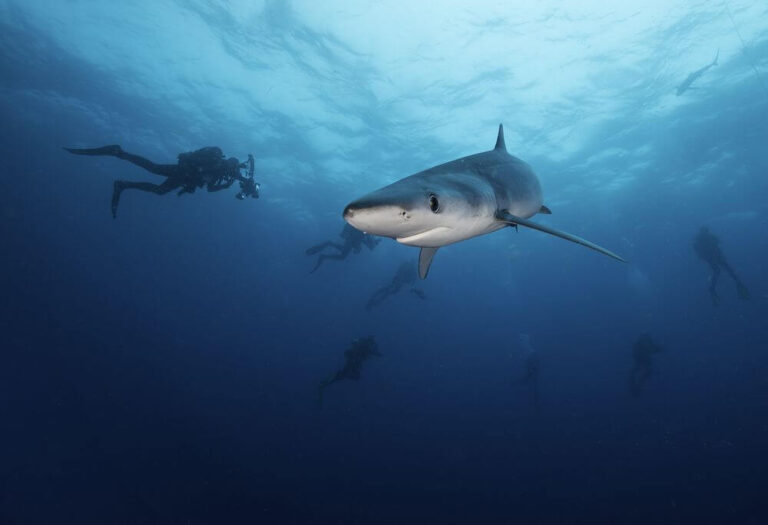
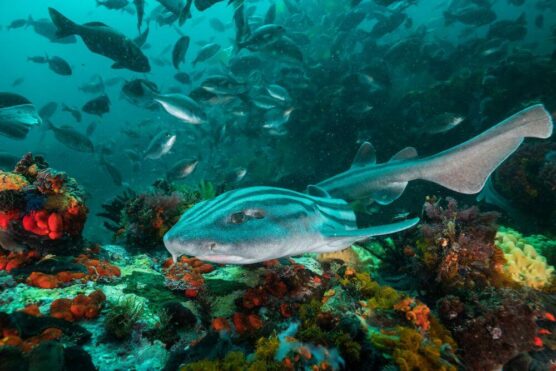
7 Gill Cow Shark Facts!
The Best Diving Schools in Cape Town
Cape Town is an absolute tourist hub, and because of this, most diving schools in Cape Town are suitable for beginners. We know you’re after a more insider local scoop though – which is why you’re reading this guide!
Best Diving School in Cape Town to Get Scuba Certified
- PADI Open Water Course: R5950 ($427) per person
- Pool training is done in their pool in Sun Valley, shore dives are done in Simonstown and boat dives are done in False Bay (weather dependent) or occasionally in Hout Bay.
- You’ll receive free dive medical cover from DAN (Divers’ Alert Network) for the duration of your Open Water course.
- Includes all dives, certification card, gear rental and air fills for the duration of the course, and all learning materials.
- Four open water dives to review your skills and explore the ocean!
What makes this spot so great for beginners? Well, the instructor of course! Tony Lindeque is a qualified PADI Master Scuba Diving Cape Town Instructor, SDI Instructor and EFR Instructor with a love for the ocean and all its creatures – but especially seahorses!
Particularly interested in underwater photography and videography, this is the spot if you want to see all the colourful Alcyonacea, sponges, anemones and soft corals the Cape Town ocean has on offer!
With small group sizes, as well as an intense theory component, confined water training dives to learn basic scuba skills and 4 open water dives to review your skills and explore the ocean – getting scuba-certified doesn’t get much better! These are some of the best scuba diving lessons Cape Town has to offer!
The free medical cover you recieve for the duration of your open water course makes this spot basically admin free too.
Learn to Dive Today don’t provide accommodation, so be sure to check out the accommodation options we’ve found for you in the area! We recommend staying in Kommetjie or Simon’s Town for this one!
This diving school offers both PADI and SDI recreational Cape Town scuba diving courses, as well as an extensive list of Specialty courses. PADI courses on offer include: PADI Open Water course Cape Town, The PADI one day Discover Scuba Diving (DSD), The PADI Advanced Open Water and PADI refresher course.
Any night owls wondering what happens underwater after the sun goes down? Well at this dive school you can enroll in the PADI Night Diver Specialty course and see first hand!
Best Diving Centre in Cape Town for Cheap Diving Courses
- Their cost of the PADI Open Water course Cape Town is only R4600 ($330), compared to the average price of around R5600 – R6000 ($404 – $433) at other dive schools – this is a bargain!
- Located in the quieter, way less touristy beachfront town of Strand.
- Consists of 3 parts: theory, pool training and 4 sea dives.
- Flexible training times to suit your schedule
- Still provide highly professional and quality services!
Alpha Dive Centre don’t charge exorbitant fees. Why? Well you may or may not know this, but Cape Town scuba diving prices are not cheap. At Alpha Dive Centre they want to keep their divers diving! So here you can pay for your course, and still afford your own kit too.
Want to learn to dive without having to save up for another month before you can enjoy the perks of being PADI certified? Well then you may want to consider this dive school, they often have specials where you can get up to 20% discounts on courses too.
Alpha Dive Centre doesn’t offer accommodation, however, being in such a little seaside town – finding accommodation in the area is really easy.
Cape Town scuba diving courses on offer at Alpha Dive Centre are: Introduction to Scuba Diving, PADI Kids Courses, PADI Open Water, Advanced Open Water, Speciality Courses, Divemaster, Refresher, Rescue Diver, Poseidon Rebreather Program, PADI e-learning and PADI Instructor Development.
“For more info on possible accommodation options, check out the “Where to Stay for Divers in Cape Town” section below” LINK
We recommend staying at the African Cottage if you find yourself in Strand – it’s the best value for money in the area for what you get. And it’s private too.
Alpha Dive Centre makes use of top of the range dive school gear, as well as a seriously comfortable classroom with the best coffee!
Best Luxury Diving School in Cape Town
- Price of PADI open water course Cape Town: R6600/pp ($469)
- Seriously small groups make for lots of one on one time, max 4 students per instructor!
- OX is your One Stop PADI 5 Star Scuba Diving Cape Town and PADI Freediving Centre, located in the V&A Waterfront Cape Town, South Africa.
- Transfers included with any tour booked online or by phone within 5km radius of CBD.
Be treated to the luxury of one on one time with your diving instructor with OceanX’s seriously small group sizes. Allowing a max of 4 students per instructor, you’re guaranteed some special coaching here. OceanX has a seriously extensive dive shop and they use only the best of the best for their PADI courses.
They even offer a really comfortable and spacious environment to do a dive trip: onboard the ESCAPE CAT, a 39’foot Scape catamaran!
If you choose to dive from the catamaran, then once anchored, you’ll kit up for the first (of two) dive and during your surface interval: fruit, biscuits, hot chocolate & water are served before entering for the second dive! You’ll start heading back to the V&A Waterfront while embracing all the beautiful views that the Atlantic Seaboard has to offer. Bliss.
If you’re looking for ultimate luxury combined with all the beauties that Cape Town has to offer, consider their helicopter, boat ride and seal snorkel combo tour! This way you get to discover Cape Town from the majestic Table Mountain all the way down to the puppies of the ocean.
PADI courses on offer at Ocean Experiences are the PADI Discover Scuba Diving, PADI Open Water Diver, PADI Advanced Open Water, PADI Rescue Diver, Padi Refresher courses and some really cool speciality courses, like the PADI Wreck Diver Speciality. What better place to do a wreck diver course than in Cape Town, the home to around 800 wrecks!?
To continue the luxury treatment beyond just your diving experiences, we recommend staying at the V&A Waterfront – specifically The Table Bay Hotel!
Best Dive School in Cape Town for Big Groups
- PADI Open Water Diver Course from R5,600 ($402)
- Located within close proximity to Long Beach, Cape Town’s most sheltered open water dive site.
- Pisces Divers is a PADI Five Star Instructor Development dive centre and Cape Town scuba diving operator.
- Interesting and varied Cape Town diving spots for all our PADI dive courses.
- 90 square metre mezzanine level comprising of a large 20 seater classroom
- PADI Open Water Diver Course from R5,600 ($402)
With an onsite pool, easy access to their local training beach in Simonstown and full in-house facilities, including a coffee shop and a very spacious classroom (can take up to 20 people at a time) – this is a school that’s built for big groups.
Pisces divers in Cape Town all have considerable experience both in South Africa and abroad and have an abundance of knowledge to go round.
Because their instructor/student ratios are 1:4 or less, you will have plenty of personal attention and time to ask questions!
If you’re after a sociable and relaxed vibe – Pisces is just the spot for you. This is a great spot for a divers weekend away with the dudes/ettes.
While they don’t offer their own accommodation, the nearby Simon’s Town backpackers is is a great place to enjoy a social vibe and bunk up with some mates!
This dive school offers a variety of PADI Cape Town scuba diving courses, such as: PADI Discover Scuba Diving (DSD), PADI Open Water Diver Course and PADI ReActivate courses. As well as some pretty awesome speciality courses, like: PADI Deep Diver Specialty, PADI Dry Suit Diver, PADI Navigation Specialty, PADI Night diver, PADI Underwater Photography Specialty and much more!
We definitely recommend staying at the Simon’s Town Boutique Backpackers for this one, it has the best divers vibe, the most divers, and a bar!
Have a spare day floating around and would like to have a marine adventure in Cape Town? Consider joining Pisces for a Cape Point seal snorkeling outing. They take you and your big group of friends to the majestic Cape Point by boat, followed by a snorkel with the playful Cape Fur Seals.
Best Diving School in Cape Town for Honeymooners
- Open Water Deluxe Option: R6495 ($466) (includes the PADI Ultimate Crewpack with DVD’s, theory manual, eRDPml, and logbook)
- Located in the divers hub of Seapoint, Cape Town
- COUPLES SPECIAL: Sign up as a couple and get a R500 ($35) discount off the total for the Deluxe course.
- Transport can be arranged for those situated in Cape Town and surrounds!
Conveniently located in Sea Point Cape Town, close to many luxury hotels as well as the popular V&A Waterfront – this is a prime location for a Cape Town honeymoon getaway.
Wake up to beautiful ocean views and the iconic Table Mountain and stay within walking distance from one of Cape Town’s best dive centres.
Want someone to take pictures of you and your significant other while you’re exploring the stunning reefs and wrecks or playing with the seals?
Well these guys are kitted with some awesome underwater camera gear and, if requested, they’ll make sure you get some awesome honeymoon footage!
Into The Blue Dive School doesn’t provide accommodation, but being in walking distance from some of the best hotels and guesthouses in the area – we don’t see that as being an issue, we’ll point you in the right direction!
Cape Town has about 800 shipwrecks, which means there is a wreck that suits everyone! And this is the dive school for you if exploring them is something you’d be interested in. Some of their other fun dives include snorkeling with seals and nature scuba dives.
PADI courses they teach include: PADI open water, PADI advanced open water, PADI refresher scuba course, PADI rescue diver course, as well as a load of PADI speciality courses too.
We recommend staying at the Winchester Mansions Hotel in Sea Point to make your honeymoon one to never want to forget.
At Into the Blue Dive School Cape Town, they stock a large amount of scuba gear in their dive shop! So feel free to pop into the store to have a chat about some of the great brands they specialize in.
Best Diving School in Cape Town for Eco Diving / Marine Conservation
- Marine Science SCUBA Field Course prices:
4 weeks: R68 146 ($4900)
2 weeks: R33 440 ($2400) - PADI Open Water Diver course from R5,600 ($402)
- Marine Science SCUBA Field Course includes free self-catering accommodation!
- Located in the historical Simonstown (the dive hub of Cape Town)
- Specialising in long-term projects to monitor the biodiversity of this global hotspot with more than 3500 endemic marine species.
The rich ocean around Cape Town supports a variety of beauty, from white sands, Yellowtails Cape Fur Seals, huge reefs, to some awesome shark species…
At Cape Radd, it was an intense curiosity for understanding the inner workings of our ecosystem that led them down a path of academia.
They study our oceans to better understand how to conserve them.
Above all else, they are driven by excitement and thrill. Is there really any better way to stimulate passion than to fill our days with adventure?? We think not.
Dylan Irion, the course director, is a marine scientist and Save Our Seas Foundation project leader, working towards a PhD that aims to unravel the drivers of white shark population dynamics in South Africa.
While the other course director, Mike, is a marine biologist/scientist/conservationist and a PADI master scuba diver instructor. He has travelled the world, diving and experiencing many ecosystems and their inhabitants.
Cape Radd is located in Simonstown, and has partnered with Pisces Divers and Simon’s Town Backpackers to provide logistical support for students of their field course.
Staying at the backpackers and experiencing either their 2 week course, 4 week course or even just their PADI open water diving course (which costs around R5600/$402) is a must for those wanting to grow their knowledge, skills and connections!
Besides the opportunity to take part in the marine science scuba field course, other PADI courses they teach are: Discovery Scuba Diving, Reactivation Course, Open Water Diver Course, and the Advanced Open Water Diver Course.
Cape RADD encourages citizen science by hosting divers and snorkelers on a data collection experience, a citizen science day! Check out the different options and pick your favourite one to take part in.
Best Diving School in Cape Town for Diving with Sharks
- Around R2000 ($144) per person
- Location: the shark hotspot of Millers Point in False Bay.
- The dive location is bordered by kelp forest, with a sea bed of both rocky gullies and smooth sand patches.
- Chance to dive with Seven-Gill Cow Sharks!
- Door to door transport service for around R200 ($15)
- Dive permits are included and valid for 1 month
- Around R2000 ($144) per person
False Bay diving is characterised by large areas of granite corestone reef interspersed with sandy patches, and a relatively flat sand bottom further out.
There are also sandstone boulders along the shoreline. Many of the reefs are fairly large areas of massive outcrops with ridges, gullies and boulders on top.
Being stared down by a shark isn’t quite something you will forget any time soon. But what if you’re looking for an adventure that doesn’t involve a cage?
Well this experience is quite different to the usual shark encounters on offer, and while you won’t bump into any great whites – 7 Gill Cow sharks, Gully sharks, and two types of shy shark are all possibilities.
The Seven Gill Cow Shark dive is a very special one in a stunning setting under the Cape Peninsula mountain range set in small protected stony cove. This is the only place in the world where you can consistently dive with these rarely seen sharks.
You will find yourself surrounded by these beautiful placid sharks and, best of all, it is a simple dive at only 10 meters deep in the protective kelp forest!
Know before you book – This one requires an Open Water Diver certificate, so if you haven’t yet got one, and REALLY want to experience this once in a lifetime dive, then checkout the best diving school in Cape Town to get PADI certified first! – LINK
Diving in Cape Town - Everything You Need to Know
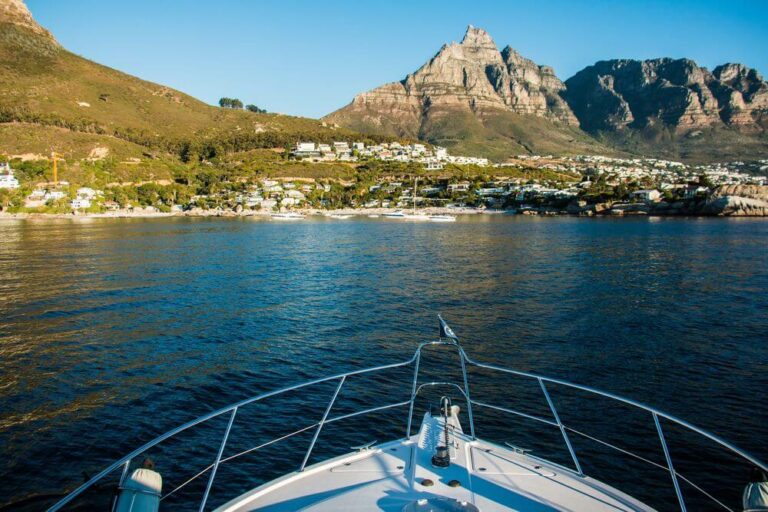
In Cape Town, many dive sites are actually accessible from the shore, which is why most of the dive centres are able to do training dives from the shore, giving you a little extra sea-time!
The Cape Peninsula is made up of the False Bay and Atlantic coastlines, which meet at Cape Point. We’ll dive into them separately in a sec – but first, how will having two coastlines at your disposal work? Well, fantastically of course! Two separate bioregions to explore, along with the varying marine life found on each coast too.
The rich ocean around Cape Town supports a variety of predators, from Yellowtail Tuna, Cape Fur Seals and Octopus, to some shark species such as: Pyjama Shark, Puffader Shyshark, and 7 Gill Cow Shark sightings.

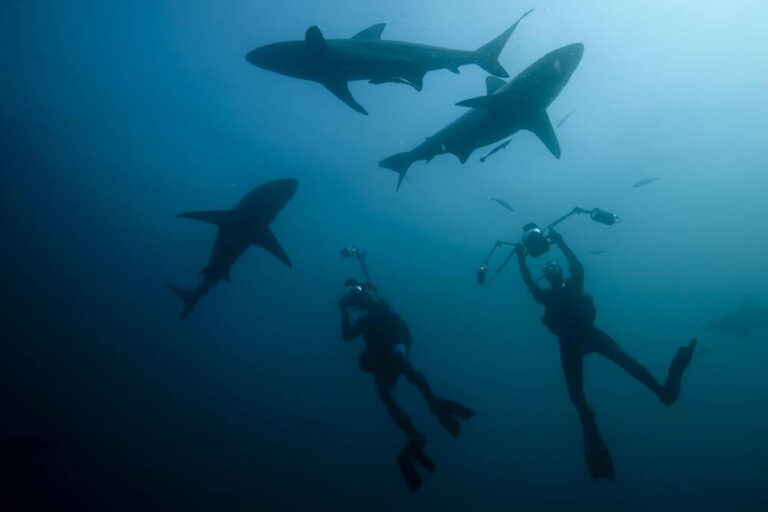
When out in these deep waters on an open water dive, you also stand a chance of bumping into dolphins, as well as a variety of prized game fish and whale species.
These include: Orcas, Southern Right whales, Sperm whales, Humpback whales, Pilot whales, Common Dolphin, Dorado, Bonita, Longfin tuna, Sunfish, Yellowtail and Yellowfin tuna.
With around 800 shipwrecks in the area, dives aimed at exploring these wrecks are common, so get used to hearing names like the A-Frame and The Boss 400 (Africa’s largest wreck). As well as dives where you come into close contact with the friendly and playful Cape Fur Seals that inhabit this area too.
When it comes to diving conditions in Cape Town, tides are not something you will need to worry about, as they are generally very weak. Divers are usually not exposed to strong tidal currents, making Cape Town the perfect place for shore dives and beginners too!
Cape Town’s weak tides mean that tidal currents are practically non-existent, except at a few select spots during Spring Tide. Diving spots in Cape Town, such as Windmill in False Bay, will sometimes have tidal currents during this time, but again they are not extremely dangerous.
In summer, Cape Town is really hot (around 28/29°C) and there are loads of opportunities for sunscreen and beaching. However, in winter, Cape Town actually gets really cold – like 11°C and icy wind kind of cold.
False Bay:
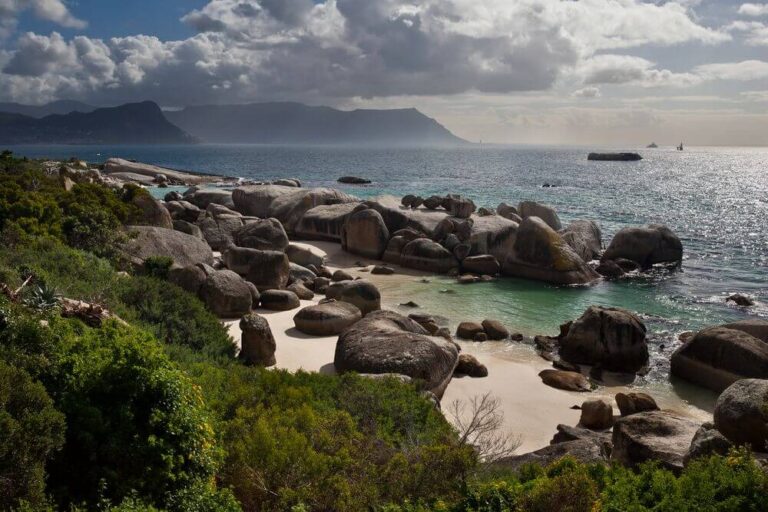
False Bay is The Cape Peninsula’s Eastern Coast, stretching from Cape Point to Cape Hangklip. However, its most popular shore dive sites are concentrated between Muizenberg and Cape Point. False Bay forms part of the Atlantic Ocean, however, all year round it’s considerably warmer than the Atlantic Coast.
Although this side is known to best serve divers in winter (May – October) because of it being protected from winter’s swell, your dive instructors will make the call as to where you’ll be heading. But it’s not uncommon for this spot to have some great summer dive conditions too.
Shipwreck, seal and reef diving are all possible in False Bay. The reefs in False Bay consist of big boulders covered with highly colourful Alcyonacea, sponges, anemones and soft corals. The marine life is stunning, and home to over 200 species of nudibranchs!
False Bay visibility clears up rather slowly. After rough conditions, fine sediment can swirl around for over a week, ruining visibility and making for poor diving conditions. In general, the visibility in False Bay is usually around 5 to 10m, however, divers have been able to see up to 20m
Water temperature around False Bay is normally around 16°C, however this drops in summer to around 12°C.
Atlantic Coast:
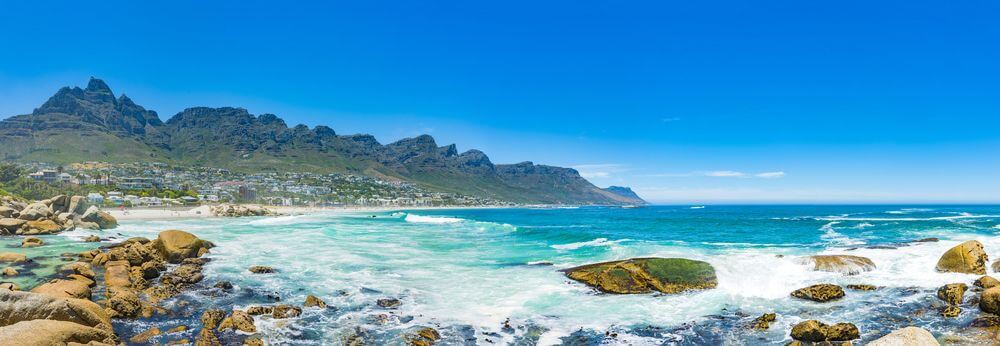
The Atlantic Coast runs along the Cape Peninsula’s Western Coast, from Cape Point to the V&A Waterfront. Made up of many small rocky bays, this stretch of land is notoriously treacherous, sending many ships to the bottom of the ocean floor – hence why it’s the best side for wreck diving!
The Atlantic Coast is significantly colder than False Bay, and its water, which flows from the Antarctic, is frightfully cold all year round! Although seriously cold, as long as you’re adequately insulated with the correct equipment (which you will be with these awesome dive centres), you’ll avoid a brain freeze. The Atlantic Coast generally clears up in summer (November – April).
On the Atlantic Coast, divers will find four distinct habitats, namely rocky shores, reefs, kelp forests and sandy bottoms.
This side will have you enjoying many exciting and colourful shore dives too, with many swim throughs and overhangs. On a typical Atlantic dive you’ll see kelp forests, seals and colourful soft corals.
The Atlantic Coast generally clears up really nicely in summer (November – April), making this the summer dive spot for sure. Visibility along the Atlantic Coast clears up swiftly, sometimes completely changing overnight and can reach up to around 20m.
The colder Atlantic coast can drop to about 10°C. Either way, when diving in Cape Town – no matter the season – you will be wearing a wetsuit that is suited for really cold water. You can use this epic wetsuits guide, to pick the best one.
It seems odd watching fully kitted divers walk around in over 30°C heat, however locals call this the ‘pre-bake’. It is a tactic used to deal with the Atlantic Coast’s incredibly cold water, which can drop to as low as 8°C after an upwelling of deeper water.
The Diving Squad Scuba Camera of Choice
- HERO6 Black automatically sends your footage to your phone where the app turns it into a QuikStory-an awesome edited video
- Captures super smooth footage, whether it’s handheld or mounted to your gear
- Waterproof to 33ft (10m) without a housing
- Features touch zoom and updated the 2-inch display, making it easy to frame shots, change settings and play back footage
Dive Season in Cape Town

January – December marks the entire diving season within Cape Town. Protected from different swells, and benefitting from different winds, False Bay and the Atlantic Coast are suited to different times of the year – ensuring a year-round diving season!
May – October are considered the best months to dive on the False Bay side, as this side is best suited to the winter months, when the water is clean, clear, and not too cold here. In the summer months, the South-Easterly winds can spoil the diving conditions of False Bay completely, decreasing visibility to zero sometimes.
November – February are considered the best months for diving around the Atlantic Coast. Summer is an appealing time to learn to dive because the weather is sunny and warm, and this is a busy time for diving on the Atlantic Coast.
June – September are the best months to dive with 7 Gill Cow Sharks in Cape Town. This is due to the dive site being located on the False Bay side, which best serves divers during Cape Town’s winter months.
October – March is tourist season in Cape Town. Starting off slowly and peaking during the months of December – February, temperatures can occasionally reach up to 35°C during the peak of summer. These summer months invite tourists from all over the world to flock to the beautiful Cape Town for everything from great food, hiking and beaching to diving!
Getting to Cape Town
On the other hand though, Cape Town can be whatever holiday destination you want it to be, and if you’re looking to relax and soak up the sun all day – summer time in Cape Town is for you.
The more touristy beaches of Clifton are amazing spots to watch the sun go down, however the quieter beaches, such as Bakoven’s beach and these other hidden Cape Town beaches are goldmines for quiet seekers or those looking for a more ‘local’ place to hangout in the peak-tourist season.
Jumping on a sunset boat cruise, hiking the famous Table Mountain and hopping on one of the hop-on-hop-off red bus tours are all musts if you want to truly see this magical city from all angles!
SPLASH! It’s important to remember that scuba diving is an extreme sport. Accidents can happen. Sorry to burst anyone’s bubble.
What’s more, because diving can take you all around the world, it’s absolutely essential you make sure you are properly covered by the best scuba diving insurance before leaving your home country.
We recommend going with Dive Assure. Why?
- Unbeatable prices.
- They offer both short term and long term insurance.
- Cover loss of diving equipment, emergency medical and evacuation expenses and flight/accommodation costs following injury.
The Best Places to Stay in Cape Town for Divers
Dive schools in Cape Town don’t usually provide their own accommodation as there are a range of amazing accommodation options in and around the city that suit each and every budget.
Dive centres that do not have their own accommodation are usually happy to arrange a place to stay for divers through their website.
However, to skip commissioner fees, it is cheaper to do this yourself. Below is a list of the best 6 places to stay in Cape Town for Divers, taking into account all of your possible needs.
DON’T FORGET!! To check out our section on the best diving schools in Cape Town further below
Quick Look - The Best Places to Stay for Scuba Divers in Cape Town
| Best For | Name | Get Best Price |
|---|---|---|
| Cheapest Place to Stay | Africa Cottage Strand | Get Best Price |
| Divers Vibe | Simon’s Town Boutique Backpackers | Get Best Price |
| Luxury Experience | The Table Bay Hotel | Get Best Price |
| Honeymooning Divers | Winchester Mansions Hotel | Get Best Price |
| Backpackers Vibe | Carnival Court Backpackers | Get Best Price |
Cheapest Place to Stay in Cape Town for Divers
- $. Super Cheap. Great Location.
- Offers self-catering accommodation & BBQ facilities and an outdoor dining area
- Enjoy beautiful mountain views and complete privacy
Africa Cottage offers a great location seriously close to the cheapest dive school in Cape Town. Not only that – but you’ll have an entire apartment to yourself!
Food stores, cafés, restaurants and shops are only a 2-minute drive away from this spot. Cape Town International Airport is only 19 min away whilst the Cheetah Outreach Centre is just 7 minutes away!
Best Place to Stay for Divers Vibe in Cape Town
- $
- Affiliated with Pisces Dive Centre as well as Cape Radd!
- Free accommodation for divers that sign up for either the 2 week or 4 week Field Course with Cape Radd
Simon’s Town Backpackers has a great social vibe to it – especially as far as divers go! Being the only accommodation that two of the best diving schools send their divers to!
With a bar and a really funky communal area, it’s great for chilling-out and sharing stories after a full day of diving!
If you’re into conservation and thinking of joining up for one of Cape Radds field courses, then this is definitely the spot for you – as your accommodation will be free!
Best Luxury Hotel for Divers in Cape Town
- Featuring beautiful views of the working harbor, Table Mountain and the Atlantic Ocean.
- Within walking distance of all major tourist sites, harbour views, shops & restaurants.
- Get celebrity treatment with world-class service at this 5 star luxury hotel!
The Hotel Spa offers a number of spa treatments, holistic care, laser therapy, as well as a gym. A free shuttle service is available to transport guests around.
It is within walking distance from the best luxury diving centre in Cape Town, Ocean Experiences!
With 5 restaurants on site, a fitness centre, a pool bar and all the bells and whistles you’re looking for on your luxury diving getaway to Cape Town – it doesn’t get much better than the Table Bay Hotel.
Best Place to Stay in Cape Town for Honeymooning Divers
- Rooms feature a sea or a mountain view and some face the Italian piazza style Courtyard.
- Facing the Atlantic coastline, this hotel features a heated pool and a romantic courtyard surrounded by palm trees and fountains
- Jazz brunches with live music!
- $$
Guests can opt for some holistic treatments in the Ginkgo Spa, take romantic strolls down the Sea Point Promenade or enjoy paragliding and landing on the beaches.
Full English breakfast is served at the hotels restaurant daily, and this hotel is known for its excellent coffee. It also serves South-African cuisine with a European twist, and meals can be enjoyed indoors or on the terrace.
Best Backpacker Hostel in Cape Town for Divers
- Found on buzzing Long Street in Cape Town
- $
- Walking distance from the best bars, clubs and restaurants.
- Free WiFi is accessible to all guests
Backpackers offer seriously cheap accommodation and provide you with a kind of ‘lock up and go’ feel. Providing guests with basic amenities, along with some perks!
This backpackers has two balconies overlooking long street (the spot to be), a fully equipped kitchen, free wifi, access to 24 hour reception, full bar and entertainment!
During your stay, Carnival Court will connect you to Cape Xtreme, one of the top adventure agencies in South Africa!
Live folk music three nights a week, a pumping bar a help-yourself popcorn machine, and random game nights to keep you entertained.
Things to Do in Cape Town
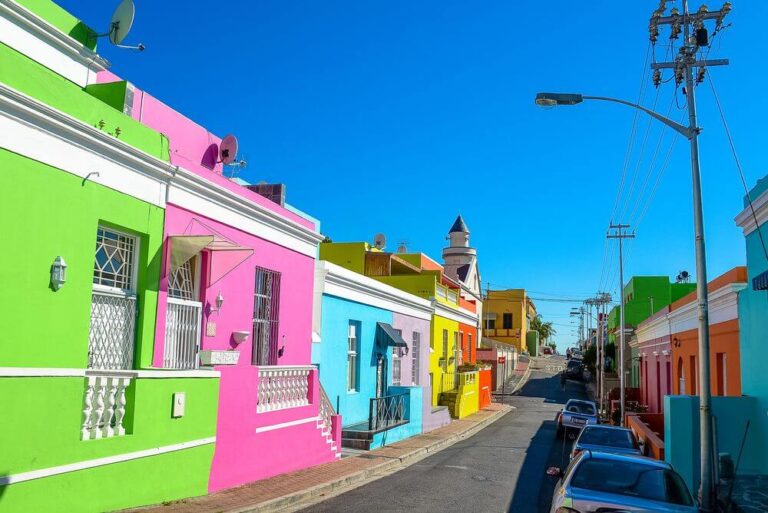
Besides Cape Town being home to two different coastlines, making for an insane diving location, there are also a lot of other things to do in Cape Town. From exploring the beautiful beaches, diverse restaurants, craft beer breweries, wine farms, and the iconic Table Mountain for starters.
Social Vibe
Cape Town has an extremely vibey social scene, and the locals (Capetonians) are friendly, outgoing, outdoorsy and adventurous people. Always up for a party, the city centre of Cape Town is a hub of nightclubs, pubs, bars, galleries and art exhibitions.
‘First Thursday’ is actually the Capetonian way of opening the art galleries up for a night of free entrance, art exhibitions and partying into the night on the first Thursday of each month.
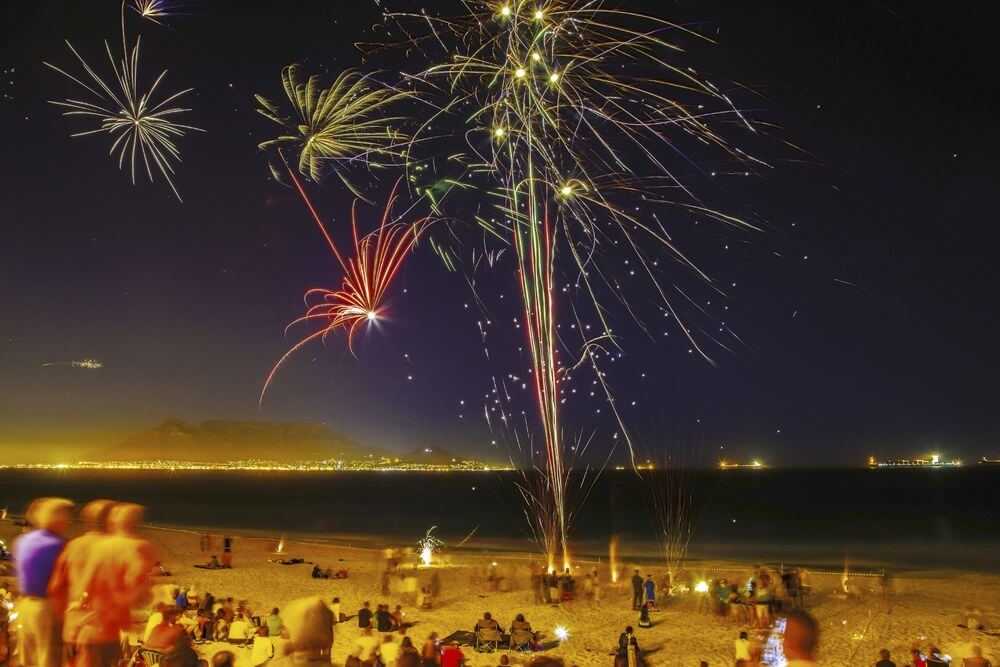
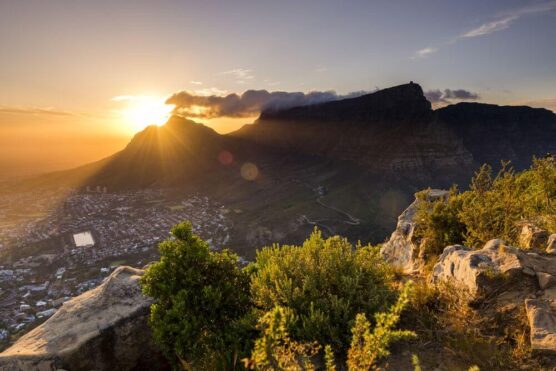
Sightseeing
On the other hand though, Cape Town can be whatever holiday destination you want it to be, and if you’re looking to relax and soak up the sun all day – summer time in Cape Town is for you.
The more touristy beaches of Clifton are amazing spots to watch the sun go down, however the quieter beaches, such as Bakoven’s beach and these other hidden Cape Town beaches are goldmines for quiet seekers or those looking for a more ‘local’ place to hangout in the peak-tourist season.
Jumping on a sunset boat cruise, hiking the famous Table Mountain and hopping on one of the hop-on-hop-off red bus tours are all musts if you want to truly see this magical city from all angles!
Cape Town as a Location
So what is Cape Town like as a location? Well, just think pristine white beaches, lush vineyards producing some of the best wines in the world, towering rocky cliffs and a mountain shaped like a massive table waiting for you to summit it. That’s Cape Town.
It’s locals playing their African instruments at the V&A Waterfront and it’s all the endless free/really-cheap hiking trails. Here you’ll enjoy everything from deep-rooted history, to a truly South African ‘braai’ (the local term used for a BBQ).
With our featured dive schools scattered all around this beautiful little city, let’s first give you an idea of what these various areas are like:
Cape Town VA & Waterfront
- Made up of hotels, one of Cape Town’s biggest shopping malls, 5 star-dining, leisure and entertainment facilities. This is 123 hectares where you can live, eat and play.
- This is tourist central! You’ll definitely end up at the Waterfront at some point while in Cape Town.
- Walking distance from the Cape Town Wheel, the Two Oceans Aquarium, the Clock Tower, Robben Island boat tours and home to Noble Square. Also extremely close to Camps Bay beach and the 4 Clifton beaches too!
- The V&A has a vibey atmosphere by night (loads of pubs where you can start off your night, you’d need a 7 min uber ride to the nearest club though). As well as some really quiet and romantic spots too; with all the pretty lights reflecting off the harbour’s waters while you enjoy a delicious meal.
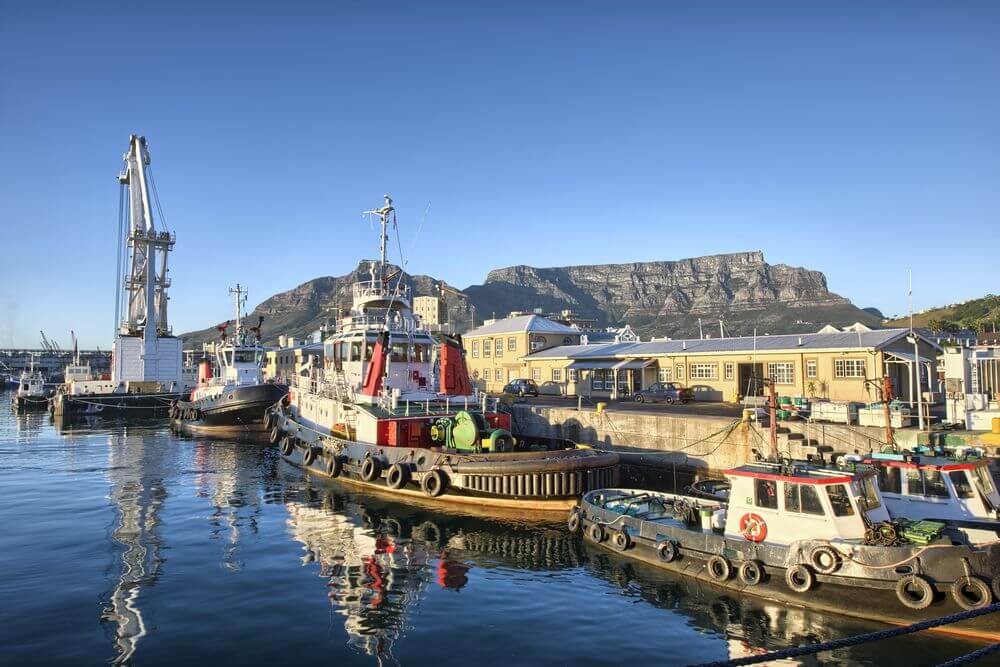
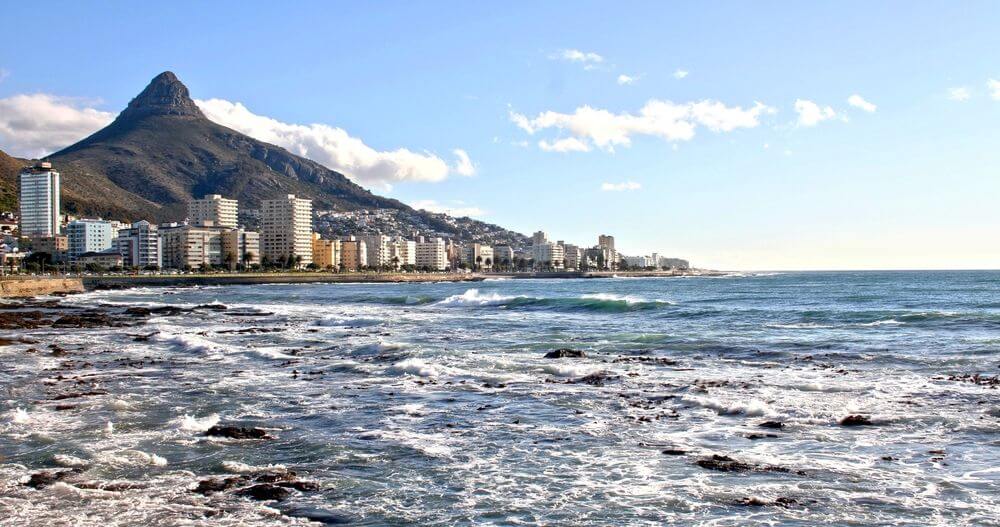
Sea Point
- Sea Point is a lively and laanie suburb where sandy beaches like Milton and Saunder’s Rock feature tidal pools, kids’ playgrounds and sunset views.
- Home to the Sea Point Promenade, a popular walking and running route – even has an outdoor gym!
- Sea Point has a party vibe with bars along the strip, and is home to a really funky nightclub known for its retro sing along hits.
Kommetije
- A quiet and rustic little seaside village located along Long Beach.
- Known for being one of Cape Town’s surfing & kite surfing hot spots!
- Just under an hour’s drive (stunning drive) from the hub of Cape Town (V&A Waterfront). Only 7 km from Sun Valley, which is the neighbouring village and home to the best diving school to get PADI certified. And a mere 20 min drive from Simon’s Town.
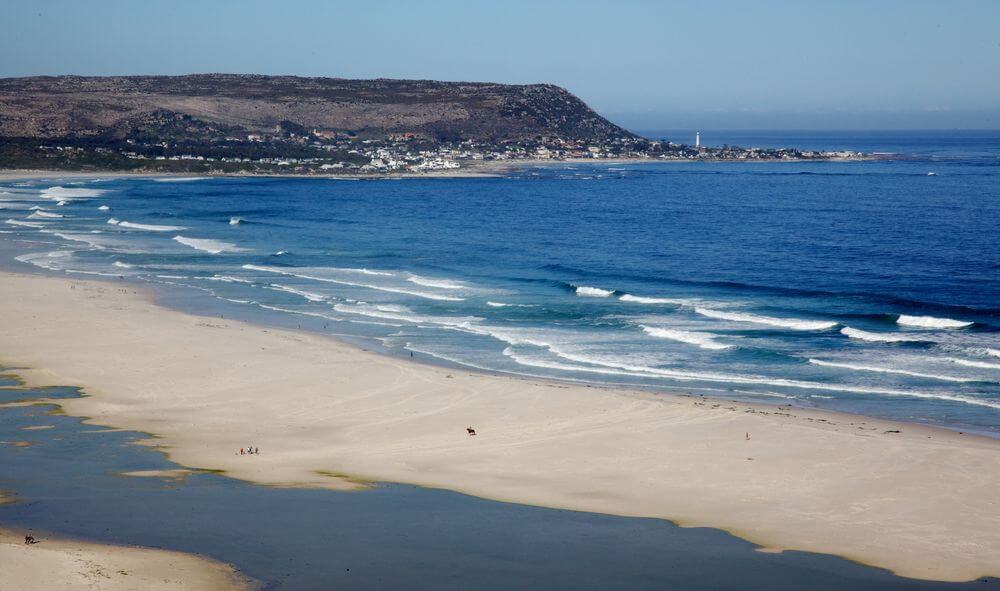

Simon's Town
- A village rich in history, character, atmosphere and warmth!
- 2 km walk from Boulders Beach – home to the African penguins!
- This little seaside town is always buzzing with people exploring the rich history of is this town, kayaking, snorkeling, diving and eating at amazing seafood restaurants!
Strand
- The town of Strand is situated on the shores of False Bay and home to Strand beach.
- It’s an easy 40 minute drive from the V&A Waterfront and Cape Town city centre.
- This is a quiet area with no major tourist attractions nearby besides being 5 km from Cape Town’s cheetah outreach, where you can walk with the cheetahs.
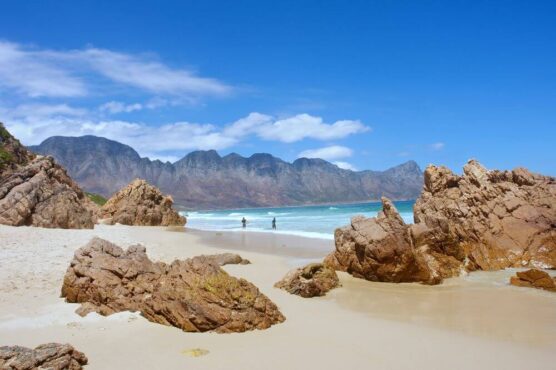
Diving Squad Debriefing
Squad! Give yourself a great big wet slap on the back!! You have just finished this MONSTER article on Scuba Diving in Cape Town.
You should now be fully equipped with all the knowledge you need – the best diving schools, the best divers accommodation, diving conditions, weather and season in cape town, what to do out of the water, what to pack, what to do, how to get there…phew! All that remains now is for you to plan your ultimate Scuba Diving Adventure in Cape Town. Bon Voyage!
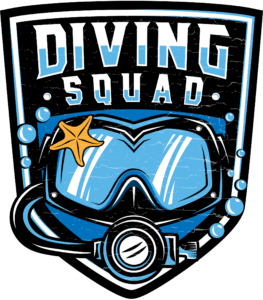
You May Also Like:
Help Diving Squad with Marine Conservation
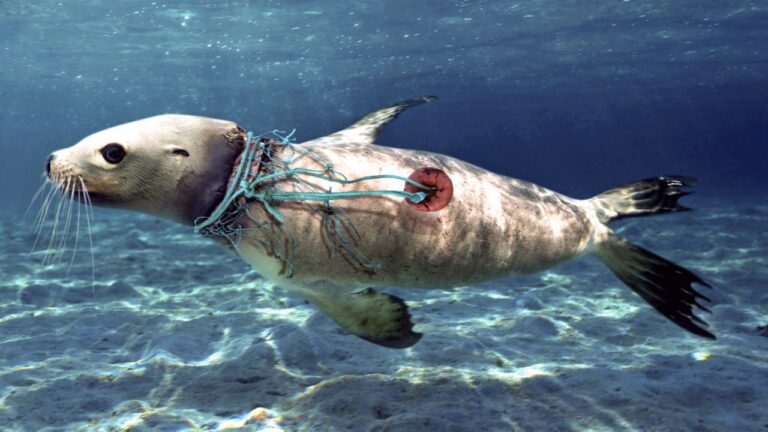
EPIC FAIL HUMANITY:
- Over 18 billion pounds of plastic enters the World’s Oceans every year. That’s enough trash to cover every foot of coastline around the world with five full trash bags of plastic (Every. Year).
- As well as containing it’s own toxic chemicals, like BPA, plastic absorbs even more potent toxins from other pollutants in the Ocean such as oil, untreated sewage and radioactive waste.
- Plastic is indestructible and never degrades. Instead it simply breaks down into smaller pieces which accumulate together, en masse.
- Today, each square mile of ocean has over 45,000 pieces of plastic floating in it.
- Plastic is mistaken for food and eaten by marine animals. Because it can’t be digested, it fills their stomachs and causes them to starve to death.
- For those “lucky” individuals that don’t eat plastic, the toxic chemicals present in every part of sea water from plastic, wreck havoc throughout the ecosystem causing changes in animals behaviour, immune systems and reproduction.
- There are 200 known ‘dead zones’, or areas deprived of oxygen and devoid of life, (area between 1 and 70,000 km²), in the world ocean, due to plastic: this number has doubled every decade since 1960.
- Chemicals in heavily polluted waters can make their way back to us and cause serious health issues like reproductive problems, hormonal problems, kidney damage, and nervous system damage.
- It’s estimated that by the year 2050, there will be more plastic in the ocean than fish (by weight). AND IT’S GETTING WORSE
The Time to Act is NOW
To Diving Squad, the grizzly stats above are appalling, tragic and completely UNACCEPTABLE. That’s why we are working hard towards combating plastic pollution in the ocean.
How do we do this? Through spreading awareness, providing informative guides on eco friendly diving and donating 10% of all profits that we make towards combating plastic pollution in the Ocean.
So, how does Diving Squad make money? Through You! Every time you click on one of our painstakingly, yet lovingly researched liveaboard, gear or insurance links and spend money – we earn a % commission thanks to affiliate partnerships.
We then donate 10% of this towards Marine Conservation Schemes that target plastic pollution.
What does this mean? It means that if you book a Liveaboard through a Diving Squad link – some of that money goes directly towards Marine Conservation. Buy a piece of Gear through a Diving Squad link?
Nice! You’ve just contributed money towards Marine Conservation. Booked yourself Diving Insurance through Diving Squad? Go, go Marine Conservation!
So help us…help you…help the Ocean. Together, we can do this.
To which Marine Conservation charity do we donate, you might ask? Our squad is already hard at work selecting the ideal candidate. The winner will be announced at the end of 2019. Have a suggestion? We’d love to hear… If we pick your suggestion, there just might be something in it for you…
Contact us at: Alex Hatton: ajhatton55@gmail.com (Grand Admiral at Diving Squad).

